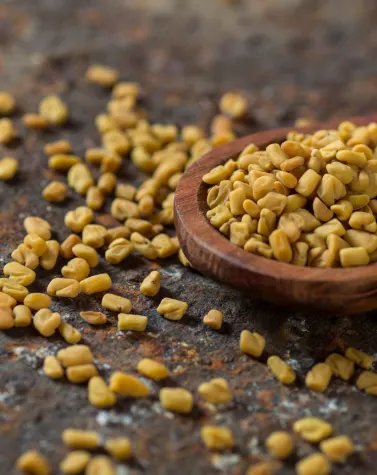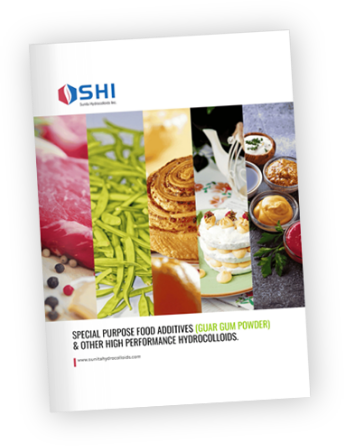
What Is Cassia Powder? A Complete Guide to Its Uses & Benefits
Cassia powder has become popular worldwide due to its range of health and industrial uses. It is a natural ingredient obtained from certain plants and is used in kitchens, wellness routines, and many industries. People have used cassia for centuries in traditional medicine and food preparation. Today, demand for cassia powder grows as studies reveal new benefits for health and everyday life.
What Is Cassia Powder Made From?
Cassia powder is mainly made from two types of plants: Cinnamomum cassia, which is often called Chinese cinnamon, and Cassia tora, a different legume species. Unlike true cinnamon, Cinnamomum cassia has a stronger, spicier flavor. Producers collect the bark or seeds from these plants and dry them before grinding into a fine powder.
While many confuse cassia with cinnamon, there is a key difference: cinnamon (Ceylon) contains lower levels of coumarin, a compound that in high amounts may harm the liver. Cassia, on the other hand, is darker, more pungent, and often more affordable, making it widely used in pharmaceuticals, cosmetics, and foods.
The bark is cleaned, dried, and ground into a fine powder. Sometimes the seeds of cassia tora are processed for use in commercial hydrocolloid formulations. According to the United States Department of Agriculture (USDA), cassia contains high amounts of cinnamaldehyde, an essential oil compound responsible for its aroma and therapeutic properties.
Historical and Ayurvedic Significance
For centuries, cassia powder has been a cornerstone of Ayurvedic medicine and Traditional Chinese Medicine (TCM). Ancient healers used it to treat digestive issues, improve circulation, and restore balance in the body’s internal systems. Cassia was also known as a warming herb, traditionally administered in teas and herbal decoctions.
In India, cassia found a special role as a natural hair care enhancer, promoting shine and reducing scalp issues. In Chinese tradition, cassia bark decoctions were given to treat colds, arthritis, and pain. Historical texts, such as those in the Chinese Pharmacopeia, identify cassia as a valuable medicinal spice that symbolized vitality and longevity.
Nutritional Composition of Cassia Powder
Cassia powder is rich in nutrients and bioactive compounds that contribute to health and wellness.
- Vitamins: Vitamin C, A, some B-complex
- Minerals: Calcium, manganese, iron, and zinc
- Antioxidants: Polyphenols that fight oxidative stress
- Cinnamaldehyde & Coumarin: Key compounds with therapeutic activity
These compounds help boost immunity, improve metabolism, and support cardiovascular health through their anti-inflammatory and antimicrobial effects. According to the USDA, one tablespoon of cassia powder can provide nearly 4 grams of dietary fiber and up to 8% of the daily recommended value for calcium.
Health Benefits of Cassia Powder
Cassia powder’s reputation as a natural remedy is backed by centuries of traditional use and growing scientific evidence today.
1. Cassia as Herbal Medicine
Cassia powder contains compounds with strong anti-inflammatory properties, making it useful in alleviating arthritis, swelling, and muscle pains. It also improves blood circulation and supports digestion by stimulating enzymes that help the stomach process food efficiently.
2. Managing Blood Sugar Levels & Diabetes Support
Cassia powder is being studied for its ability to lower blood sugar. Some clinical studies suggest that people with type 2 diabetes who consume cassia powder can see a reduction in fasting blood glucose by 10 to 29 percent after 40 days, according to a review in the journal Annals of Family Medicine . This effect may come from helping the body process insulin better, but more research is needed. NIH Study on Cassia and Blood Sugar.
3. Anti-Microbial & Anti-Parasitic Properties
Scientists have found cassia powder can help slow the growth of some bacteria and fungi. It is also being tested against mosquitos, with studies showing cassia extracts can repel the Aedes aegypti mosquito that spreads dengue fever.
Research shows cassia exhibits antimicrobial activity against harmful bacteria and fungi. A study published in Parasitology Research indicates cassia extracts also demonstrate larvicidal effects against Aedes aegypti mosquitoes, which transmit dengue and malaria.
4. Skin Health Benefits
With anti-inflammatory and antioxidant compounds, cassia powder can soothe minor skin irritations, reduce oil buildup, and leave skin looking radiant. People report improvements in shine and fewer breakouts after using cassia regularly.
Cassia Powder for Hair Care
Cassia is one of the best natural solutions for maintaining luscious locks without chemicals.
Natural Hair Conditioner & Shine
When mixed with water and applied as a mask, cassia works as a natural conditioner, rejuvenating dry hair, strengthening hair roots, and restoring shine. Applying cassia powder as a mask gives dull or dry hair more shine. It can strengthen the hair roots and reduce breakage.
Cassia for Gray Hair & Natural Hair Color
Unlike henna powder, cassia imparts a subtle golden tint rather than a deep red hue, making it ideal for minimal coloring and highlighting gray strands. People use cassia powder as a gentle, natural colorant for hair. While it does not stain as strongly as henna, it can create subtle highlights and enhance natural shades.
Dandruff and Scalp Health Solutions
Research shows that cassia powder reduces dandruff and scalp infections . Its antimicrobial properties support a healthier scalp. Regular use of cassia paste helps reduce irritation and fungal buildup, promoting healthier hair growth.
How to Make a Cassia Paste
To make a paste, mix cassia powder with hot water until smooth. Let it rest, then apply to hair and cover for about one hour. A patch test is important for first-time users.
Culinary and Food Industry Applications
Cassia powder isn’t just a simple ingredient with medicinal properties. It is widely used in global cuisines and industrial food production.
Spice & Flavouring
Known as a substitute for cinnamon spice, cassia powder adds warmth and depth to baked goods, curries, teas, and desserts. Cassia powder is used as a spice and often replaces cinnamon in recipes . It has a stronger, spicier taste that many prefer in desserts and drinks.
Food Processing Industry
Cassia gum powder is recognized by the Food and Agriculture Organization (FAO) for its safety as a stabilizer. Food manufacturers put cassia in frozen dairy desserts, meat products, and flavoring syrups . It also acts as a preservative, which lengthens shelf life.
Nutrient-Rich Additives
Some health foods use cassia powder for its nutrients and antioxidant properties. Adding cassia to functional foods can boost their health benefits. Due to its phytochemicals, cassia is increasingly used as a functional food ingredient that promotes metabolism.
Industrial Applications of Cassia Gum Powder
Cassia gum powder, extracted from cassia tora seeds, has diverse industrial roles:
- Animal feeds and pet food stabilizer
- Thickening and gelling agent in dairy products
- Cosmetics and pharmaceuticals binder
- Paper, textile, mining, and oil drilling industries as a water-soluble thickener
Sunita Hydrocolloids Inc. is a global leader in hydrocolloids supply which makes sure sustainably sourced cassia gum powder for diverse applications.
Cassia Powder vs Henna Powder
| Feature | Cassia Powder | Henna Powder |
| Color | Subtle golden/yellow tint | Deep red/orange tint |
| Conditioning | Excellent for shine & hair volume | Strong conditioning but heavier |
| Suitability | Great for light highlights, scalp care | Better for full color coverage |
Cassia Oil: Uses & Benefits
Cassia oil, made from the bark, is popular in aromatherapy and massage. Its natural compounds create a warming effect and soothe muscle aches. Its uses include:
- Aromatherapy for stress relief
- Massage oil for circulation
- Antiseptic for skin care
- Hair tonic for scalp balance
Safety, Side Effects, and Precautions
It is important not to overuse cassia powder because it has coumarin, a natural substance that may cause liver damage in high doses. Always do a patch test before using on hair or skin. When eating cassia, limit intake to about one teaspoon per day to avoid side effects.
Overuse of cassia, particularly due to coumarin content, can strain the liver. Moderate consumption is generally safe, but sensitive individuals should consult healthcare providers.
Scientific Evidence and Research Studies
Multiple studies highlight cassia’s anti-inflammatory and anti-diabetic properties. However, most research emphasizes the need for controlled dosages and more human-centered trials.
Where to Buy Cassia Powder
For bulk and industrial-grade cassia powder, Sunita Hydrocolloids Inc. is a trusted global supplier. With ISO, HALAL, and KOSHER certifications, Sunita ensures premium quality cassia gum and hydrocolloids for the food, pharmaceutical, and personal care industries. Visit Sunita Hydrocolloids to explore our cassia powder range and global export services.
Conclusion: Why Cassia Powder Is the Ideal Ingredient
Cassia powder is more than a spice. It is a health-supporting, beauty-enhancing and industrially valuable natural ingredient. From controlling blood sugar and strengthening hair to thickening food products, cassia remains a versatile, safe and sustainable choice.
Related Insights on Natural Hydrocolloids
Cassia powder is just one example of how nature offers powerful solutions for health, beauty, and industry. If you’re interested in exploring more about natural ingredients and their evolving role in food, pharma, and personal care, check out these insightful resources:
- Suncol® 2030 – Premium Cassia Gum Powder
Discover Sunita Hydrocolloids’ high-quality cassia gum powder, used in food processing, pet care, and industrial applications for its gelling and stabilizing properties. - Why Natural Hydrocolloids Are Replacing Synthetic Additives
Learn how natural hydrocolloids like cassia are transforming the food and pharmaceutical industries by offering safer, sustainable alternatives to synthetic chemicals. - Cationic Guar in Hair & Skin Care Formulations
Explore the benefits of cationic guar—a plant-based polymer—used in modern hair and skin care products for conditioning, softness, and scalp health.





